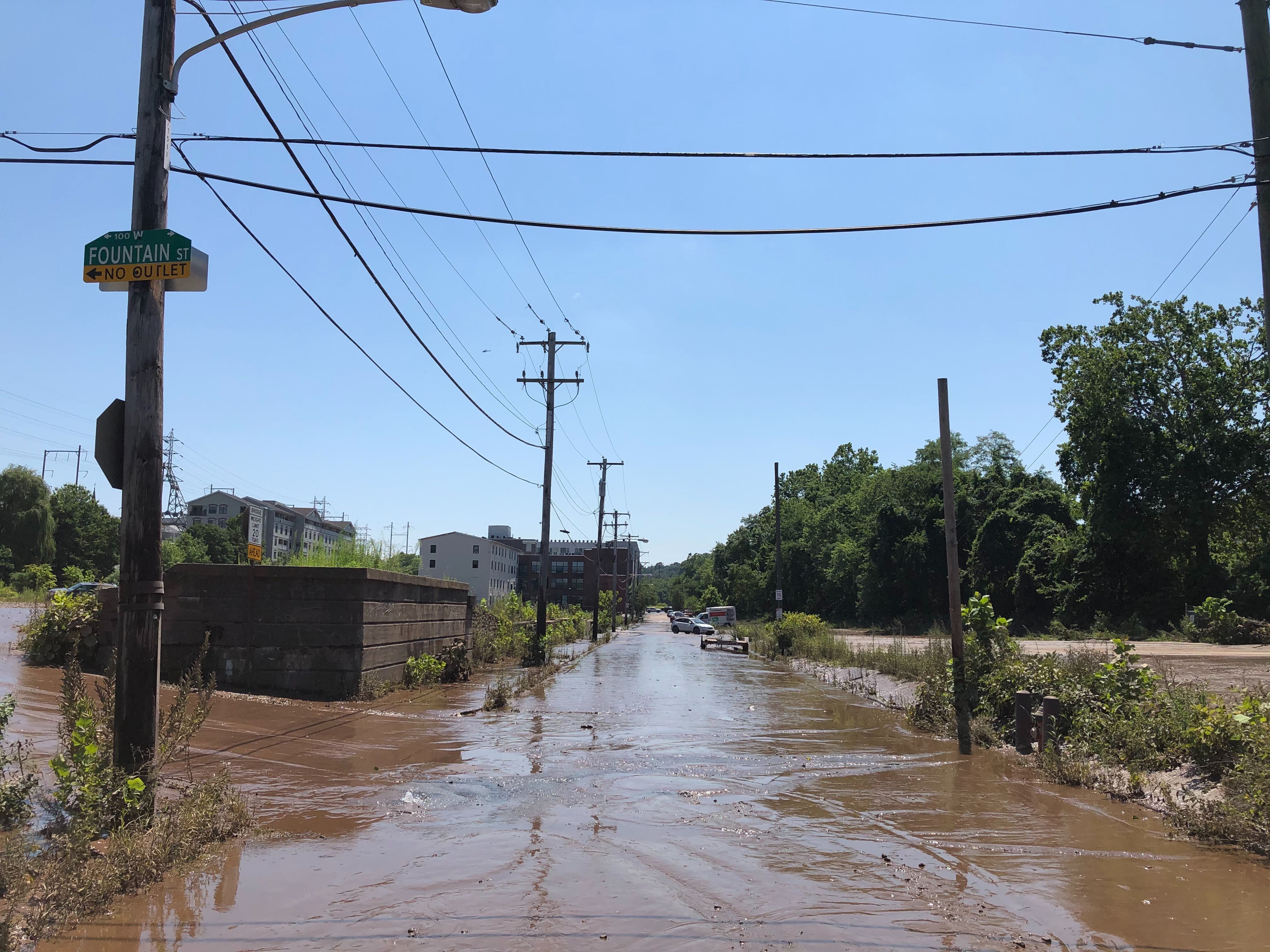Climate change, particularly flooding, will begin playing a role in Pennsylvania state agencies' planning in the years ahead as part of a growing consensus that residents are more at risk from storm damage than ever before.
Flash floods in Philadelphia and Delaware County following Hurricane Isaias' record-setting downpours in early August this year seemed to be the final straw in pushing Gov. Tom Wolf to direct his administration to weigh flood mitigation more central in planning decisions.
The dangerous floods from Isaias sent hundreds of residents and businesses fleeing for safety in the Eastwick neighborhood of Southwest Philadelphia and Darby City in Delaware County after Cobbs Creek broke its banks.
Isaias also caused destruction in the Manayunk section of the city as well as parts of Montgomery County when the Schuylkill River flooded neighborhoods.
Officials estimated that the storm caused millions of dollars in damage in addition to leaving many homeless.
Two lawmakers, state Sen. Anthony Hardy Williams and state Rep. Joanne McClinton have urged the Wolf administration to take a deeper look at flood mitigation since the floods, the governor said Wednesday.
"This is a first step, but a necessary step, to mitigate climate change and protect Pennsylvanians," Wolf said in announcing three changes to climate hazard mitigation planning.
Those changes are:
- Land Use Best Practices: The Pennsylvania State Planning Board will immediately begin drawing up "a series of best practices" for land use that takes climate change into consideration, "with an emphasis on reducing flash flooding."
- New Planning Goals: The board will also need to "establish goals for infrastructure and hazard mitigation planning."
- Statewide Implementation: Once goals and best practices are established for dealing with flooding and other effects of climate change, the new protocols will be placed at the center of decision-making by all state agencies.
Williams, who represents parts of West and Southwest Philadelphia, said these initial changes are only the first of many steps needed to help Pennsylvanians prepare for climate change in the decades ahead.
He said average annual rainfall in the state has increased by 10% since 1970 and is forecast to increase by another 8% annually over the next 30 years.
"We’re not behind. We’re woefully behind and dangerously behind when it comes to public safety," Williams said. "Today is an important first step in ensuring our homes are safe against climate change."
Wolf also said his administration is committed to proactive measures in fighting climate change, like joining the Regional Greenhouse Gas Initiative. The RGGI is a coalition of nine states -- 10 if Pennsylvania joins next year -- that collectively sets a tax on carbon emissions by companies and power suppliers.
Wolf has already signed an executive order that would enter Pennsylvania into RGGI (pronounced Reggie), and there are public hearings scheduled for January 2021. The goal of the initiative is to incentivize clean energy production by making dirtier power sources more expensive.
RGGI has drawn opposition from Republican lawmakers in Pennsylvania's legislature, but Wolf again promised Wednesday to push forward with his plan to enter Pennsylvania into the regional coalition.
There is no federal tax on carbon.
"We have been going through the regulatory process. We’re confident we can join in the next year or so," Wolf said. "RGGI will increase the cost for carbon, which will make things that will make solar and wind (power) more economically viable."



